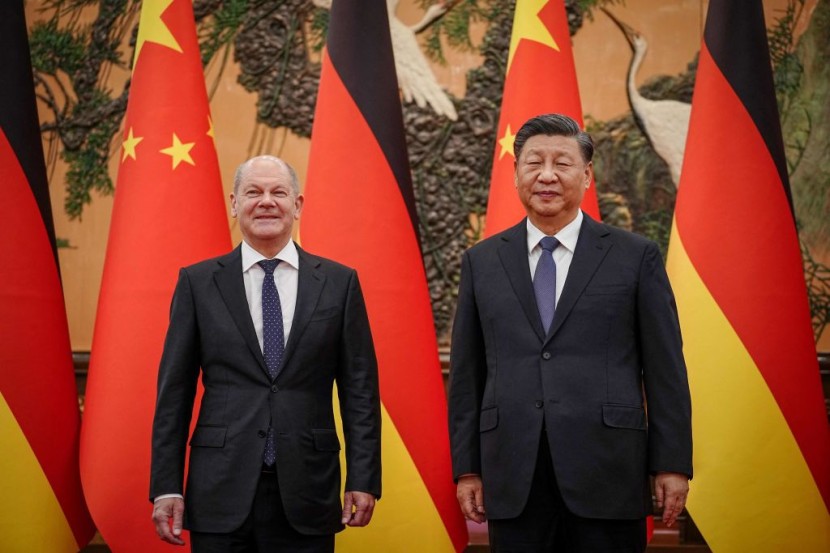
German Chancellor Olaf Scholz is in China for a three-day visit, which began on Sunday (Apr. 14). The final day is scheduled for his meeting with Chinese President Xi Jinping and Premier Li Qiang.
According to German public broadcaster DW, Scholz was accompanied by top executives from Germany to seek to strike a balance in relations with China, as German firms have been pressing for what they characterize as fairer access to the Chinese market despite European worries about Chinese goods flooding the European market.
Xi told Scholz that China's bilateral ties with Germany would steadily develop provided that both nations respect one another's differences and seek "common ground."
"We must view and develop bilateral relations in an all-round way from a long-term and strategic perspective," the Chinese leader said. "As long as both sides adhere to mutual respect, seek common ground while reserving differences, communicate and learn from each other, and achieve win-win co-operation, relations between the two countries will continue to develop steadily."
Meanwhile, Scholz said on Tuesday (Apr. 16) that he would discuss peace in Ukraine with Xi despite its European and Western allies having sought to isolate Russia since it launched an all-out invasion of Ukraine in February 2022. He also warned that the war in Ukraine would risk damaging the "entire international order," including the possibility of nuclear escalation.
Despite remaining outwardly neutral, Beijing has remained the Kremlin's most important ally, DW reported.
On the other hand, Human Rights Watch (HRW) called Scholz out, stressing the "importance of human rights in the Sino-German relationship."
"Chancellor Scholz should not play second fiddle to Germany's narrow business interests, but should lead by setting the Sino-German relationship on a rights-respecting footing," HRW Germany director Wenzel Michalski said in a statement. "Promoting human rights is good both for the Chinese people and for Germany's long-term interests."
The statement was made in relation to China's alleged human rights violations against the Uyghurs of Xinjiang.
"Co-operation between world powers must prevail“ to solve "growing number of crises" Xi said in opening statement.
— Michaela Kuefner (@MKuefner) April 16, 2024
Scholz warned that "armament of Russia" (by China) threatens European security.
German Chancellor Olaf Scholz is meeting China‘s President Xi Jinping right now. pic.twitter.com/EjuagyJtv5
© 2026 HNGN, All rights reserved. Do not reproduce without permission.








